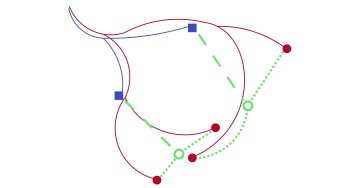Gromov-Witten invariants of blow-ups
Abstract
The Mirror Clemens-Schmid Sequence
Abstract
I will present a four-term exact sequence relating the cohomology of a fibration to the cohomology of an open set obtained by removing the preimage of a general linear section of the base. This exact sequence respects three filtrations, the Hodge, weight, and perverse Leray filtrations, so that it is an exact sequence of mixed
Hodge structures on the graded pieces of the perverse Leray filtration. I claim that this sequence should be thought of as a mirror to the Clemens-Schmid sequence describing the structure of a degeneration and formulate a "mirror P=W" conjecture relating the filtrations on each side. Finally, I will present evidence for this conjecture coming from the K3 surface setting. This is joint work with Charles F. Doran.
Towards the end of the eighteenth century, French mathematician and engineer Gaspard Monge considered a problem. If you have a lot of rubble, you would like to have a fort, and you do not like carrying rocks very far, how do you best rearrange your disorganised materials into organised walls? Over the two centuries since then, his work has been developed into the rich mathematical theory of optimal transport.
11:30
Forking independence in the free group
Abstract
Sela proved in 2006 that the (non abelian) free groups are stable. This implies the existence of a well-behaved forking independence relation, and raises the natural question of giving an algebraic description in the free group of this model-theoretic notion. In a joint work with Rizos Sklinos we give such a description (in a standard fg model F, over any set A of parameters) in terms of the JSJ decomposition of F over A, a geometric group theoretic tool giving a group presentation of F in terms of a graph of groups which encodes much information about its automorphism group relative to A. The main result states that two tuples of elements of F are forking independent over A if and only if they live in essentially disjoint parts of such a JSJ decomposition.
FFTA: State aggregation for dynamical systems: An information-theoretic approach
Abstract
Model reduction is one of the most used tools to characterize real-world complex systems. A large realistic model is approximated by a simpler model on a smaller state space, capturing what is considered by the user as the most important features of the larger model. In this talk we will introduce a new information-theoretic criterion, called "autoinformation", that aggregates states of a Markov chain and provide a reduced model as Markovian (small memory of the past) and as predictable (small level of noise) as possible. We will discuss the connection of autoinformation to widely accepted model reduction techniques in network science such as modularity or degree-corrected stochastic block model inference. In addition to our theoretical results, we will validate such technique with didactic and real-life examples. When applied to the ocean surface currents, our technique, which is entirely data-driven, is able to identify the main global structures of the oceanic system when focusing on the appropriate time-scale of around 6 months.
arXiv link: https://arxiv.org/abs/2005.00337


